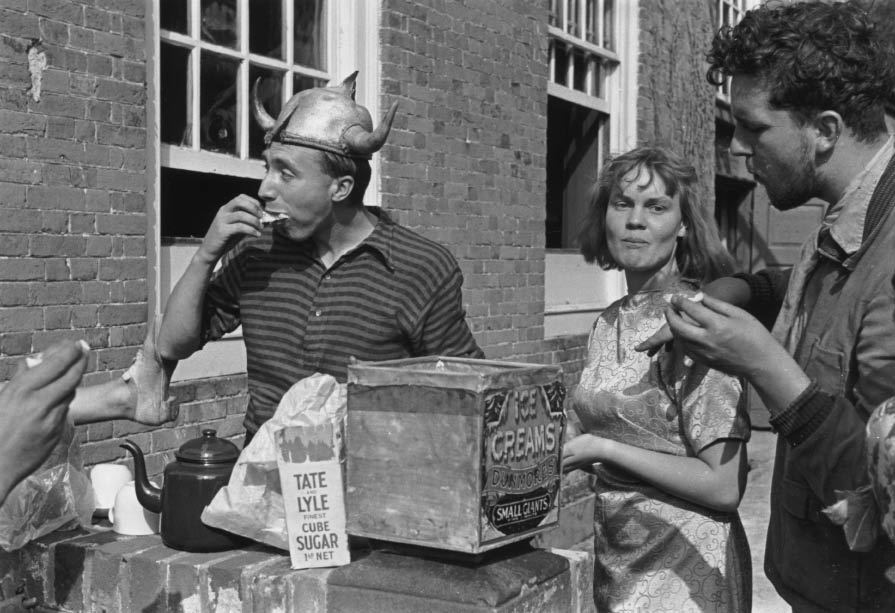‘It’s hard in letters quite to hit the mean between being earnest and sounding damn silly’ — as Iris Murdoch admits on page 205 of this book.
‘It’s hard in letters quite to hit the mean between being earnest and sounding damn silly’ — as Iris Murdoch admits on page 205 of this book. It is extraordinary to read these journals and letters written by Murdoch in her very early twenties. Her tone of voice, and the preoccupations, and the turns of phrase are exactly as they were when I, a shy teenager, first met her in her late forties. Even her handwriting — reproduced in the end papers — is the same as it was then. So the first thing to say is — hoorah for Iris, whose novels delighted a whole generation of readers and which have now rather sunk. I’m sure her shares will rise in value again.
She was a most extraordinary being — like many extremely loveable people, slightly bogus, and that strangely English combination of serious-frivolous, which she passed off as Irish. She admits that her letters are exhibitionistic, and the expositions in this volume of the existentialist novel in France and Belgium are pretty dire. Nevertheless, these letters have her authentic loveable voice. Writing to her lover, and sometime fiancé David Hicks (an unheard-of British Council lecturer, not the David Hicks) she spoke of Dostoevsky as a better guide to philosophy than the sort of boring drivel given her to peruse when she was reading Greats at Somerville:
She was destined to become an inspiring but wholly eccentric philosophy tutor at St Anne’s College, Oxford — and this is evidently just what her tutorials were like. (One of her pupils told me that when he arrived for his first tutorial, she was sitting topless, bolt upright in bed, and immediately began to talk of Dostoevsky. As a Jesuit scholastic he took this in his stride).
Two things stand out in this long letter to the unheard-of Hicks of March 1945. One is her prescient belief in the novel as a vehicle for ideas. The other is her hope that she will one day become a novelist herself. ‘One day I must give up reading books — I read too many. And do what? Write them instead? God forfend.’
This, thank God, was transparent bluff. She had already started to write, but it would take her a long apprenticeship before she got into her stride. This volume does not tell us much about her life as a writer. The first section is a (rather boring if one is honest) journal of a month before the outbreak of the 1939 war, in which Iris and a group of student friends (all unheard-of and none evoked very vividly by her pen) go on tour with an obviously rather dud drama group.
There then follows a section of letters to Frank Thompson. He was one of her most outstanding Oxford student contemporaries, heroic in war, shot by the fascists in Bulgaria at a pathetically young age. The volume concludes with a selection of letters to this David Hicks character, to whom she was unrealistically and briefly engaged.
It has to be said that only Iris Murdoch addicts will want to buy this book before it reaches its inevitable destination on the remainder tables. The letters to Thompson were written when she was an undergraduate and they have the touchingness, but also the boringness, you would expect from this fact. The letters to Hicks cover a period when she worked as a civil servant in the Treasury (and did a little surreptitious spying for the Communists). They do not convey what office life was like. But they capture her very vividly. Subsequently she worked with refugees in Austria for UNRRA. But she was not an observant writer, so there is no gossip, and not really any description either of scenery or of actions. The letter describing a visit to the ruins of Berchtesgarten in December 1945 is repetitious and schoolgirly. (‘Today was fantastic’).
The dreaded Peter J. Conradi (Iris’s biographer) ‘edited’ the volume, so the reader will expect howlers. Indeed, the inevitable errata slip which fluttered out of the volume should have been five times as long. Tolkien becomes Tolkein. Nietszche appears as Nietsche. Acute accents have fallen off French words. In Conradi-land, but not in Oxford, there is something called Corpus College.
‘Young Alcibiades, according to Grote, had all the qualities of greatness except character’. Iris wrote that to Hicks. She herself had all the qualities of greatness except greatness. She seemed like a great woman when one was in her presence, and her novels have a compelling quality of almost-greatness. Elizabeth Longford used to say that when you met Iris you felt she was about to tell you the secret of the universe. She wasn’t actually going to tell you any secrets at all, least of all about herself. There was a puzzle there, all right, but these early letters do not solve it. I wonder if the letters which she poured out in such daily profusion to that monster-mage Elias Canetti will ever see the light of day? Those would be worth reading.






Comments